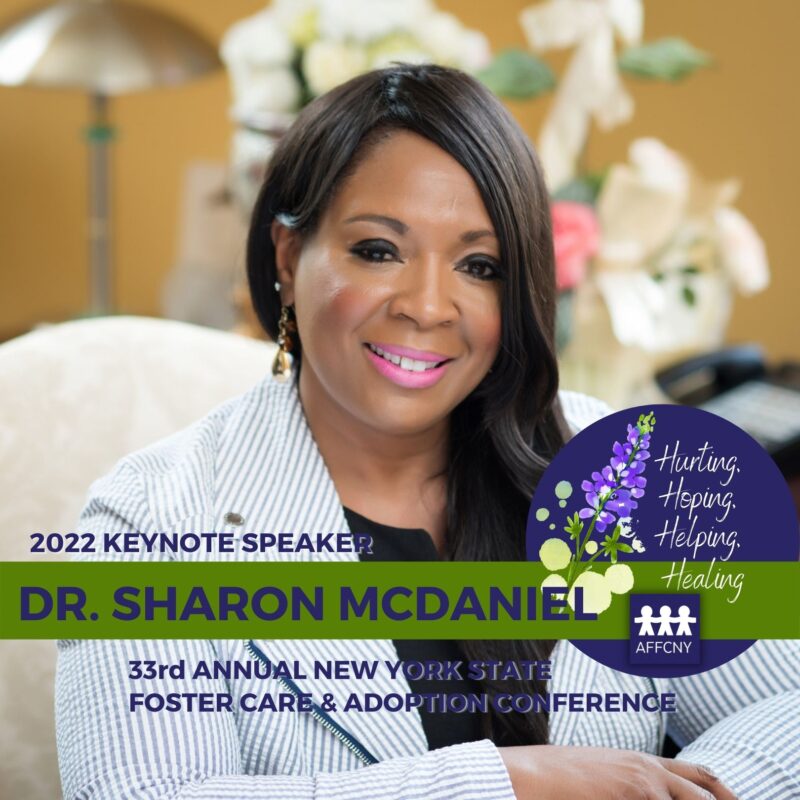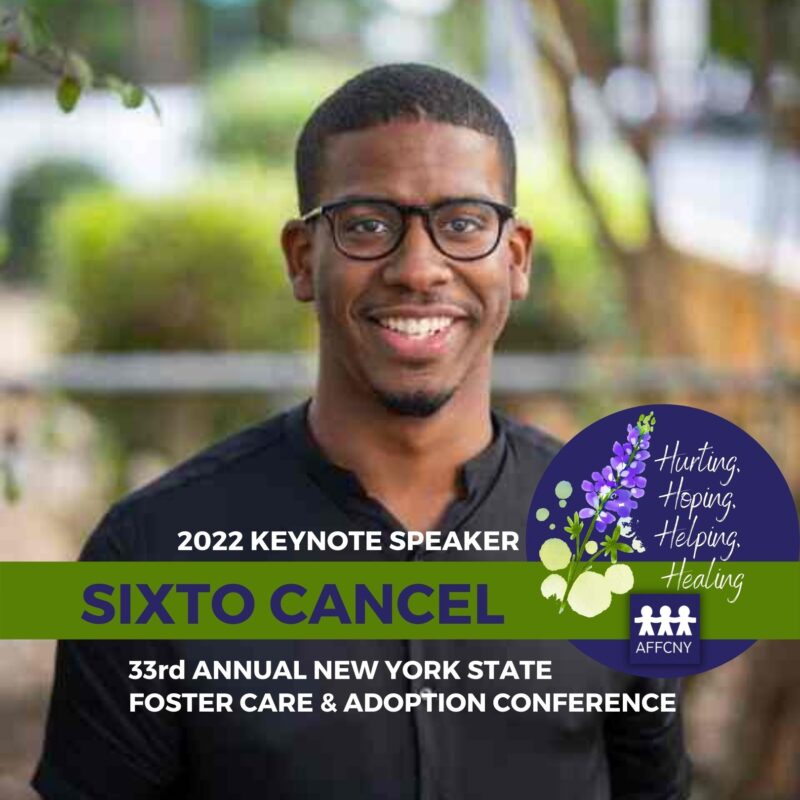Blog
From Hurting to Healing: The power of centering lived experience to transform child welfare


The 33rd Annual New York State Foster Care and Adoption Conference themed, “Hurting, Hoping, Helping, Healing” examined the deeply rooted issues in child welfare, adoption, foster and kinship care to bridge the path from “hurting to healing by connecting with one another in the hope of offering the help needed to break the inter-generational, cultural and institutional traumas that cause harm,” as explained on its website. With workshops and events designed to explore approaches to healing, keynote speakers Dr. Sharon L. McDaniel, president, founder, and CEO of A Second Chance, Inc., and Sixto Cancel, founder and CEO of Think of Us, recounted stories of their lived experiences in child welfare to center their pioneering work towards system reform and healing for children and families.
Healing Through Kinship
For Dr. McDaniel, her story of resilience and reliance on kinship and family is what shaped her value for kinship care, and belief about how child welfare should function – to support kin.
“(Kinship care) is my ministry because this has been my life,” she shares. Witnessing the lack of support her father received from the child welfare system after her mother passed when she and her siblings were children, Dr. McDaniel’s father “went to his village,” she explained.
It was this love and support through kinship that empowered Dr. McDaniel to advocate for and center the voices of children and families in need of support or in crisis.
“No child in a crisis, in need of placement, ever asks to be placed with a stranger. This whole idea of family matters at the end of the day, no matter how we define it.”
“No child in a crisis, in need of placement, ever asks to be placed with a stranger. This whole idea of family matters at the end of the day, no matter how we define it.”
Dr. Sharon L. McDaniel
As the first-of-its-kind organization, A Second Chance, Inc. (ASCI) functions to support to the triad: child(ren), birth parents and caregivers, and champions kinship as the sole prioritization for children needing out-of-home care.
ASCI’s innovative approach to centering the voices of kinship in service, policy, and practice makes it the blueprint for kinship care across the country. As a result, Dr. McDaniel posited critical policy implications to move kinship care forward on a state and federal level explaining,
“Child welfare and partners must dare to always lead in a racially equitable manner. We must disaggregate the data down to the county, worker and courtrooms levels to hold everyone accountable to a kin-first culture. Finally, we license under foster care knowing they are kin. We must establish separate regulations (3700A, 360A).”
Healing Through Advocacy
Cancel grew up in and aged out of the child welfare system. Detailing stories of his experiences in foster care – from being dismissed by callers on abuse hotlines while living in a racist adoptive home, to lies written by caseworkers on his legal case plan – Cancel’s passion for centering the voices of those with lived experience in the system drives his work and advocacy to transform its historically harmful policies and practices.
“When I got into foster care again at 15, I started to do advocacy,” he began. “From all of these experiences from going from home to home, I was not mad at the system for being adopted by someone who manipulated the system. I was angry about the fact that they didn’t believe me once I had found my voice.”
While using his voice for advocacy, Cancel went on a journey to find ways to turn sharing his story into other ways of action, he outlined.
“My first research question was, ‘How do I change a thousand workers’ behavior – over state lines, over county lines, in different systems, – without announcing a new initiative and without convincing people that they should do something differently?’ As I started to dig through, I started to realize, ‘Wow, there’s this thing called the case management system, and when the case management system has something written in it, it is almost treated like the law.’”
He continued, “I became super obsessed with [understanding case management systems] and launched Think of Us to figure out, ‘How do we have an app where young people would be able to have voice and choice?’ This is where the 1.0 version of this organization began. And today, we learned that it’s so much more than just a technical problem and that we needed to actually have a research and development lab that is focused on child welfare to focus on how to actually transform the system to make sure that we are looking at problems not just from the experience of ‘we need to fix this one thing,’ but how do we fundamentally change the architect of the system?”
“And today we learned that it’s so much more than just a technical problem and that we needed to actually have a research and development lab that is focused on child welfare to focus on how to actually transform the system to make sure that we are looking at problems not just from the experience of ‘we need to fix this one thing,’ but how do we fundamentally change the architect of the system?”
Sixto Cancel
Think of Us was created to address these barriers and operates as a “Research and Development lab for child welfare, transforming the system so that people with lived experience are at the center of designing, imagining, and building,” as stated on their website.
Both Dr. McDaniel and Cancel’s pioneering efforts to transform child welfare to heal and support children and families are breaking cycles of trauma and enforcing systems change.
For more information about how to access the Adoptive and Foster Family Coalition of New York’s annual statewide conference and future conferences, visit their website.